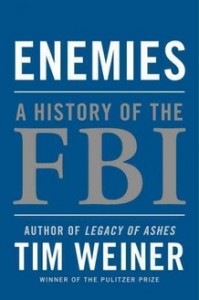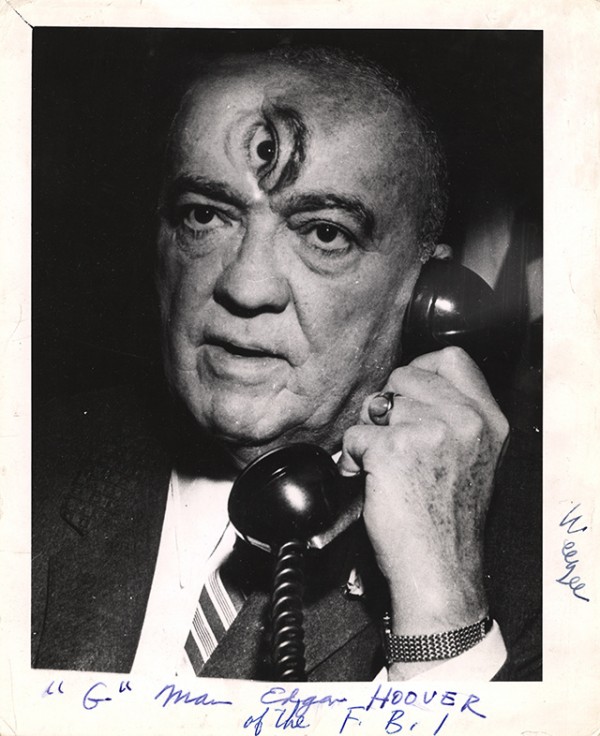FRESH AIR
Four years after Pulitzer Prize-winning writer Tim Weiner published Legacy of Ashes, his detailed history of the CIA, he received a call from a lawyer in Washington, D.C. “He said, ‘I’ve just gotten my hands on a Freedom of Information Act request that’s 26 years old for [FBI Director] J. Edgar Hoover’s intelligence files. Would you like them?’ ” Weiner tells Fresh Air’s Terry Gross. “And after a stunned silence, I said, ‘Yes, yes.’ ” Weiner went to the lawyer’s office and collected four boxes containing Hoover’s personal files on intelligence operations between 1945 and 1972. […] “Hoover saw the civil rights movement from the 1950s onward and the anti-war movement from the 1960s onward, as presenting the greatest threats to the stability of the American government since the Civil War,” he says. “These people were enemies of the state, and in particular Martin Luther King [Jr.] was an enemy of the state. And  Hoover aimed to watch over them. If they twitched in the wrong direction, the hammer would come down.” Hoover was intent on planting bugs around civil rights leaders — including King — because he thought communists had infiltrated the civil rights movement, says Weiner. Hoover had his intelligence chief bug King’s bedroom, and then sent the civil rights leader a copy of the sex recordings his intelligence chief had taken of King — along with an anonymous letter from the FBI. “It was a poison pen letter, it was a hate letter; it wasn’t from anyone in particular, but Martin Luther King and his wife would certainly know the source of the tapes, that it had to be the FBI,” says Weiner. “And the poison pen letter read: ‘King, look into your heart. The American people would know you for what you are — an evil, abnormal beast. There is only one way out for you. You better take it before your filthy, abnormal fraudulent self is bared to the nation.’ ” Weiner says King ignored the letter, even as the FBI tried diligently to defame him. “They were trying to get King knocked off from his perch as the Nobel Peace Prize recipient,” he says. “They sent [the tapes] to colleges to keep him off campus, they sent it around Washington.” It was Hoover, says Weiner, who decided that bugging King’s bedroom was necessary. “When it came down to bugging bedrooms, you had to be careful not to get caught, but there wasn’t anything to stop him,” says Weiner. “He decided up to a point … where the boundaries of the law [were] when it came to black bag jobs, break-ins, bugging, surveillance, the constitutionality of gathering secret intelligence on America’s enemies — both real and imagined.” MORE
Hoover aimed to watch over them. If they twitched in the wrong direction, the hammer would come down.” Hoover was intent on planting bugs around civil rights leaders — including King — because he thought communists had infiltrated the civil rights movement, says Weiner. Hoover had his intelligence chief bug King’s bedroom, and then sent the civil rights leader a copy of the sex recordings his intelligence chief had taken of King — along with an anonymous letter from the FBI. “It was a poison pen letter, it was a hate letter; it wasn’t from anyone in particular, but Martin Luther King and his wife would certainly know the source of the tapes, that it had to be the FBI,” says Weiner. “And the poison pen letter read: ‘King, look into your heart. The American people would know you for what you are — an evil, abnormal beast. There is only one way out for you. You better take it before your filthy, abnormal fraudulent self is bared to the nation.’ ” Weiner says King ignored the letter, even as the FBI tried diligently to defame him. “They were trying to get King knocked off from his perch as the Nobel Peace Prize recipient,” he says. “They sent [the tapes] to colleges to keep him off campus, they sent it around Washington.” It was Hoover, says Weiner, who decided that bugging King’s bedroom was necessary. “When it came down to bugging bedrooms, you had to be careful not to get caught, but there wasn’t anything to stop him,” says Weiner. “He decided up to a point … where the boundaries of the law [were] when it came to black bag jobs, break-ins, bugging, surveillance, the constitutionality of gathering secret intelligence on America’s enemies — both real and imagined.” MORE

